Between the expert sleuthing of my Twin Peaks Blog comrade Steven Miller and the detectives before us on sites like InTwinPeaks.com, there are very few filming locations from this body of work that remain uncharted. Some things, though, are simply out of reach to curious fans. But as the Log Lady says, “the stars turn and a time presents itself.” Thanks to fellow Bookhouse Boy Bob Hoag, I recently found myself crossing a seemingly inaccessible filming location off the list: the boiler room of The Great Northern Hotel, located in the Wiltern Theatre at 3790 Wilshire Blvd in Los Angeles, CA.
WHERE IS THE GREAT NORTHERN BOILER ROOM LOCATED?
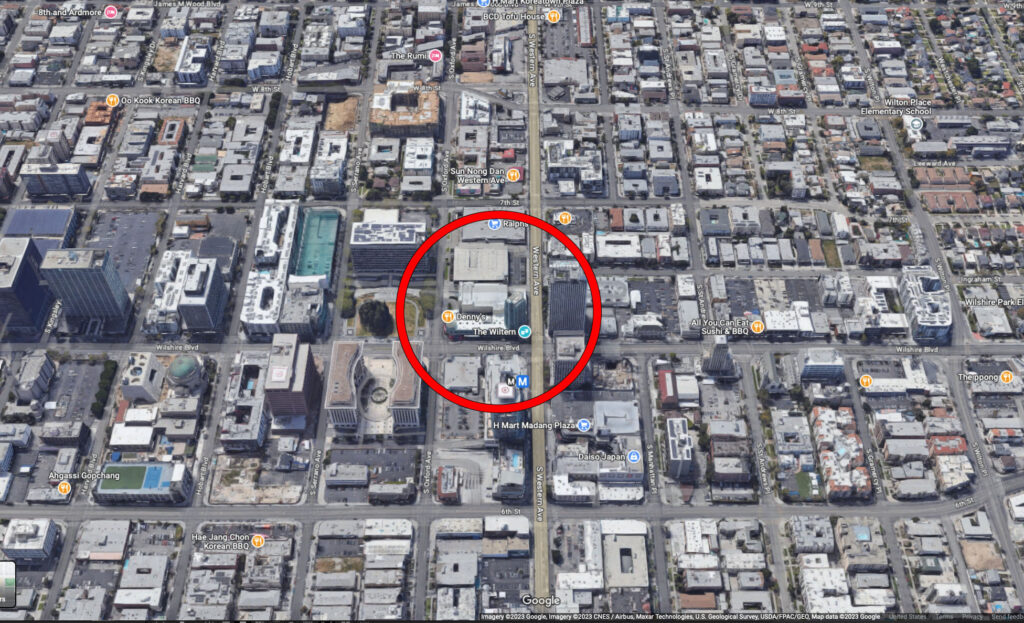
The Wiltern is located at the Southeast corner of Wilshire Boulevard and Western Avenue. California. The coordinates are 34°03’41.3″N 118°18’32.0″W.
A BRIEF HISTORY OF THE WILTERN
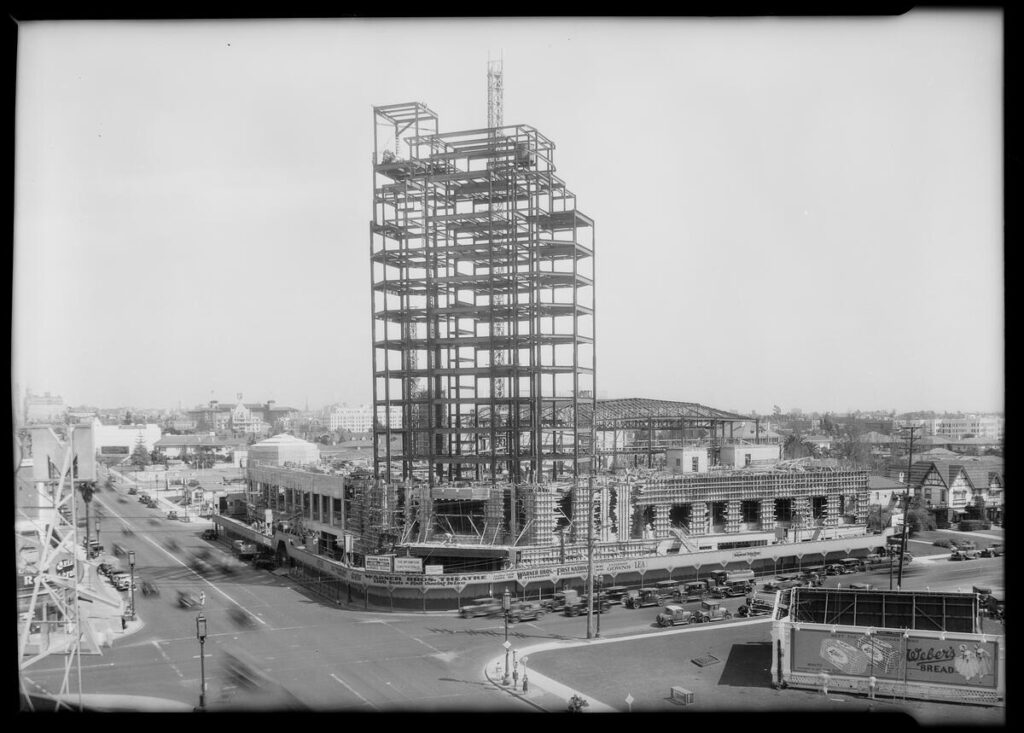
The Wiltern has an incredible history dating back to 1929 when real estate developer Henry de Roulet and the Pellissier family commissioned the construction of a theater with 12 adjoining stories of office and retail space. The theater portion of the complex was designed by G. Albert Lansburgh while Stiles O. Clements designed the office portion.
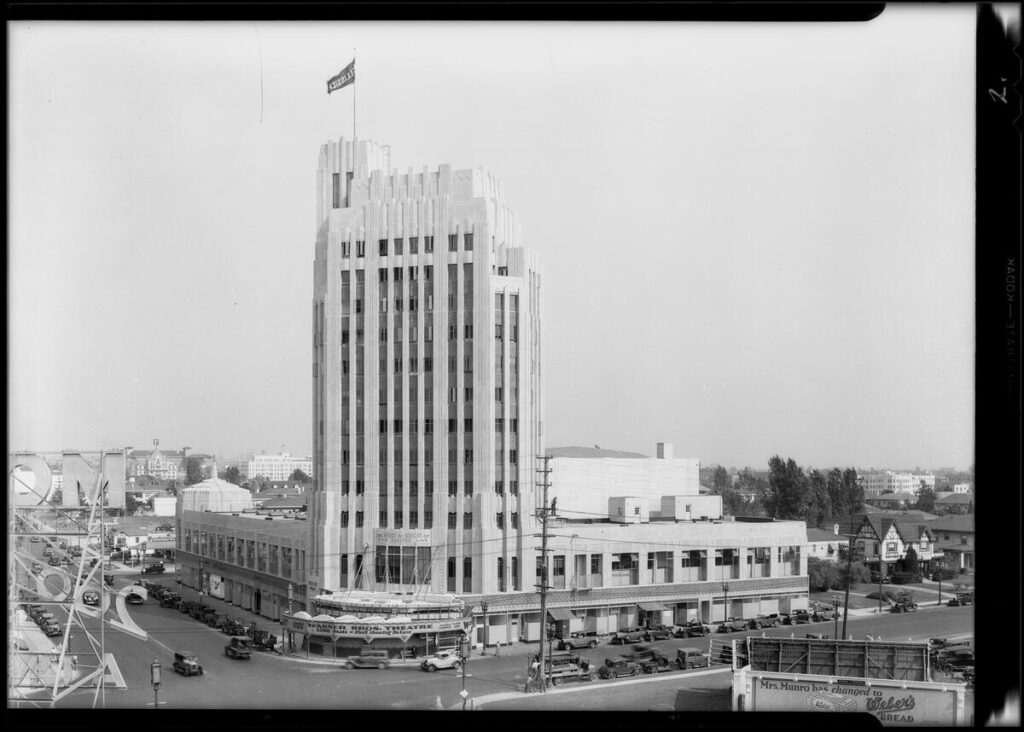
The interior was just as striking as the exterior, featuring an incredible skyscraper mural on the auditorium ceiling by Dutch artist Anthony Heinsbergen.
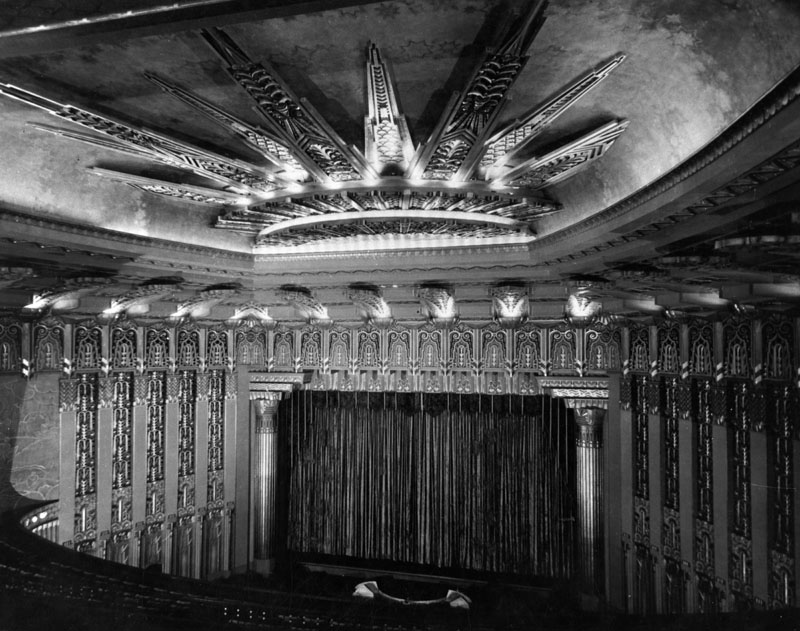
Coincidentally, Heinsbergen also painted the original mural on the proscenium of the Tower Theatre, though it had been painted over by the time this location was used in Mulholland Drive and later in Part 8 of Twin Peaks‘ third season.
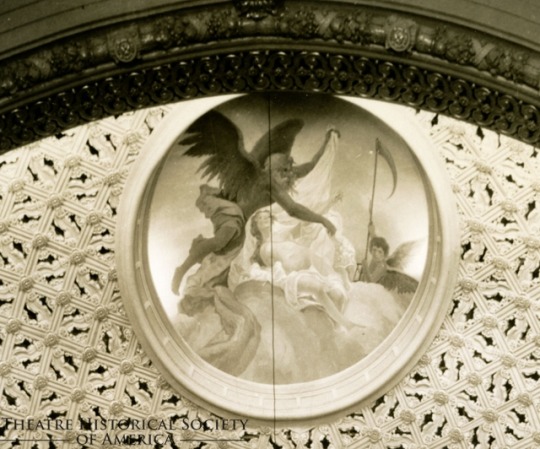
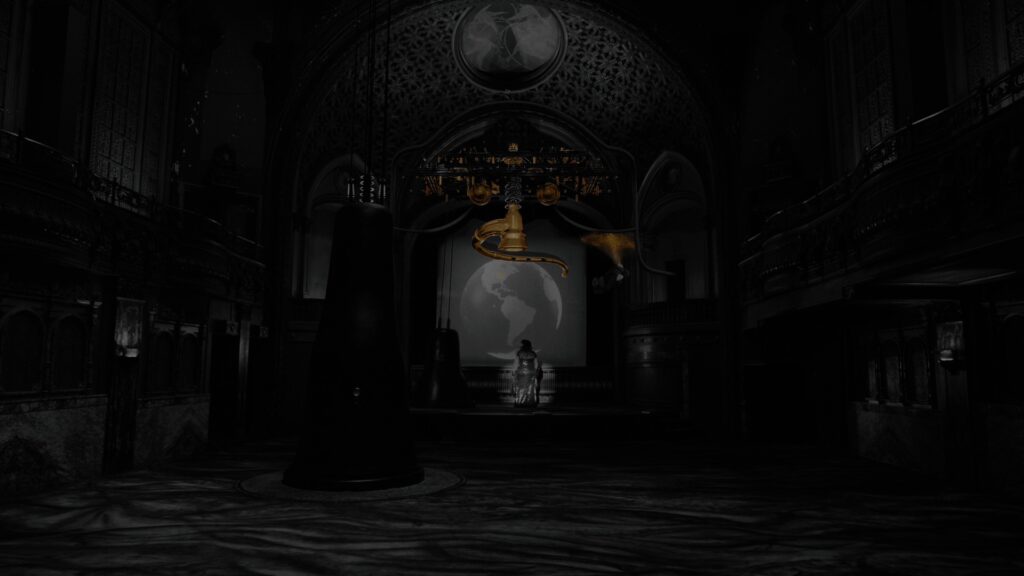
Construction was completed by the William Simpson Construction Company in 1931 and the facility opened on October 7th as the Warner Bros. Western Theater.
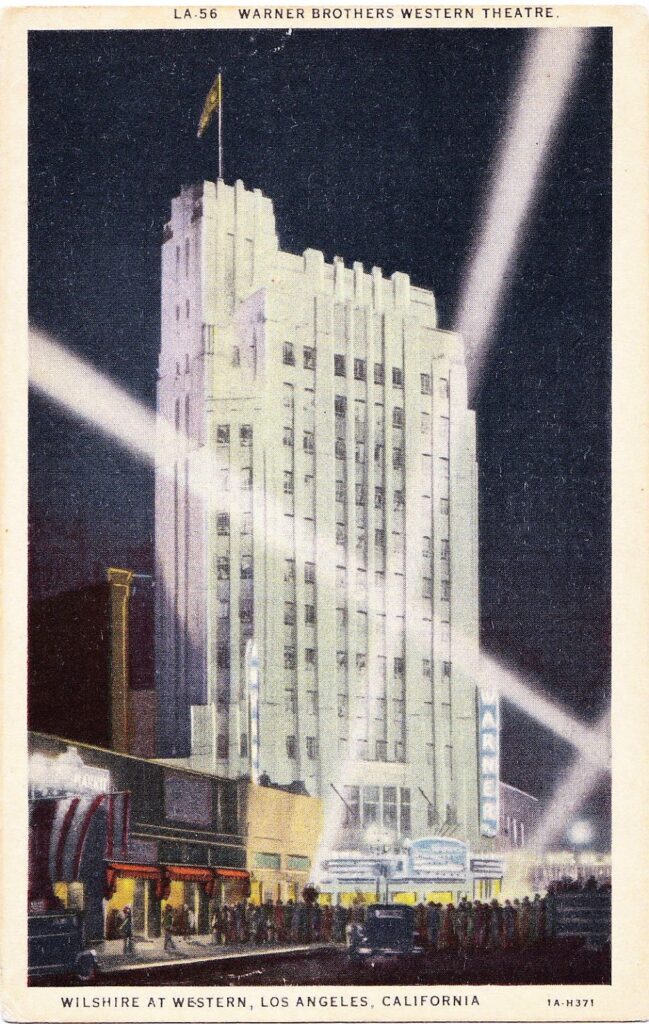
But business wasn’t exactly booming in the early 1930s. Movie attendance had fallen drastically during the Great Depression and Warner terminated their lease after just a year and a half. The theater closed briefly, then reopened as an independent cinema named after its location at the intersection of Wilshire and Western, shortened to “Wil-Tern.”
Warner returned as the industry bounced back in the late 1930s and, with the exception of a few tweaks to the name (Warner’s Wiltern, followed by Stanley Warner Wiltern), the theater finally entered a period of stability.
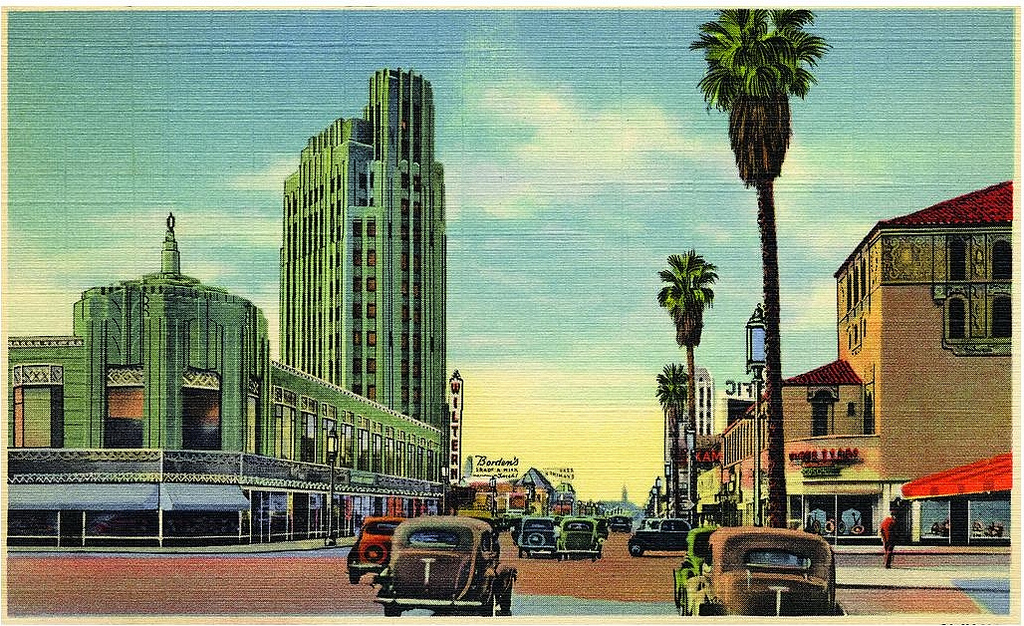
The Franklin Life Insurance Company purchased the complex from the Pellissier family in 1956. Several years went by without any major shakeups, but Stanley Warner passed operations on to Pacific Theatres in 1968, beginning a new era of uncertainty.
By 1970, Franklin Life had put the complex back on the market. In the decade that followed, the Wiltern was designated as a Historic Cultural Monument by the City of Los Angeles (1973) and was entered into the National Register of Historic Places (1979). In spite of this recognition, Franklin Life had no prospective buyers and finally applied for a permit to demolish the complex. In 1980, the theater was closed. The building was gutted and slated for destruction when developer Wayne Ratkovich proposed a deal at the 11th hour.
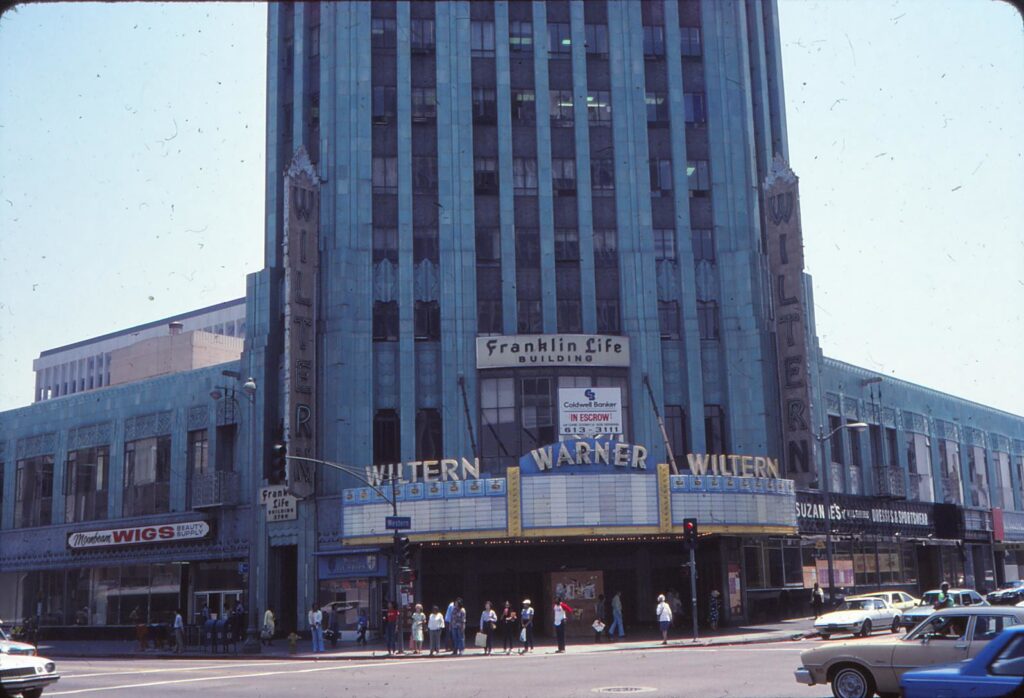
A joint venture between Ratkovitch Bowers & Perez, Vista Corporation, and Bronco Limited rescued the complex with a multi-million-dollar renovation. The goal was to restore the building while keeping its iconic Art Deco architecture intact, which was a tall order considering the damage done to the interior when the building was prepped for demolition. The team recruited architect Brenda Levin and restoration expert Ray Shepardson. Though a huge section of the theater’s ceiling was missing due to careless stripping, Tony Heinsbergen, the son of the original designer, was able to patch together his father’s skyscraper mural using pieces of the original work.
A total of $9.8 million went toward the renovation by the time it was completed, and the theater was reopened as a performing arts venue in May of 1985. Entertainment company SFX took over the lease in 2000. Shortly after that, SFX would become Clear Channel Entertainment which eventually evolved into Live Nation, who still operates the Wiltern today. One last bit of retooling was done in 2002 to equip the theater for more versatile seating arrangements, and the venue has remained mostly the same ever since.
VISITING THE LOCATION OF THE GREAT NORTHERN BOILER ROOM
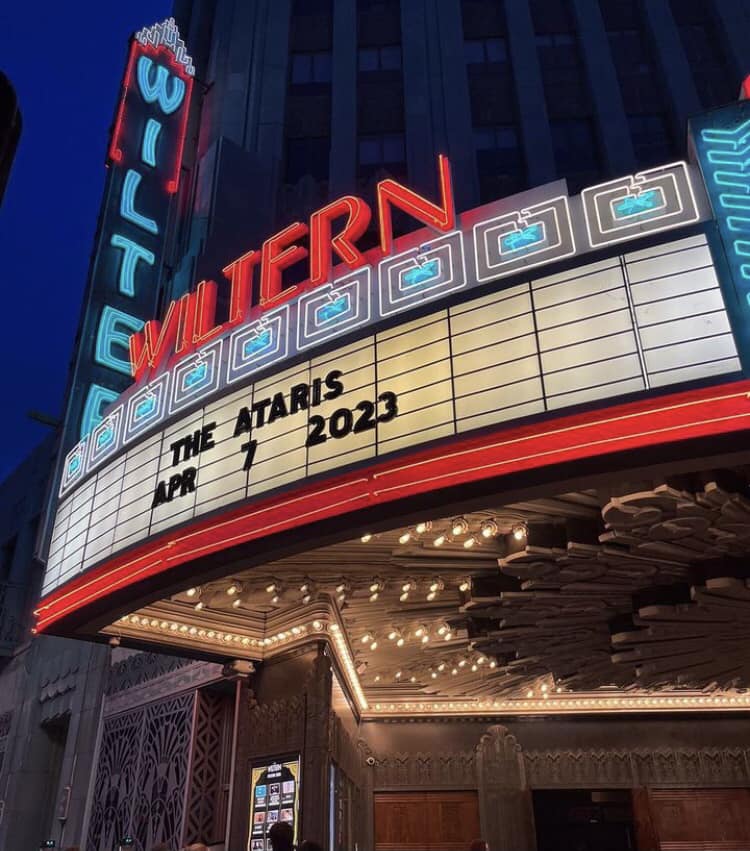
That leads me to my recent adventure at this historic site. An owl told me and my friend Bob Hoag that the boiler room of the Wiltern may have been used as a filming location in Twin Peaks‘ third season. The theater has been used for filming many times before, including in beloved classics like Escape From New York, Barton Fink, and Purple Rain. But the boiler room? This would be a tough lead to investigate.
Thankfully, the stars aligned. On April 7th & 8th, 2023, punk band The Ataris played a pair of huge shows in Southern California celebrating the 20th anniversary of their breakthrough album “So Long, Astoria” at both the Wiltern and Anaheim’s House of Blues. Bob, who is an incredible musician and producer, would serve as The Ataris’ drum tech throughout the weekend and his band Pollen would open the show the second night. How do I fit in?
Well, my band Vinnie Guidera & The Dead Birds has also shared the stage with The Ataris and I’ve had the pleasure of nerding out with their frontman over our mutual love of Twin Peaks. It was kismet! I was backstage at the Wiltern with Bob and Bookhouse Gal Christin Carlano.
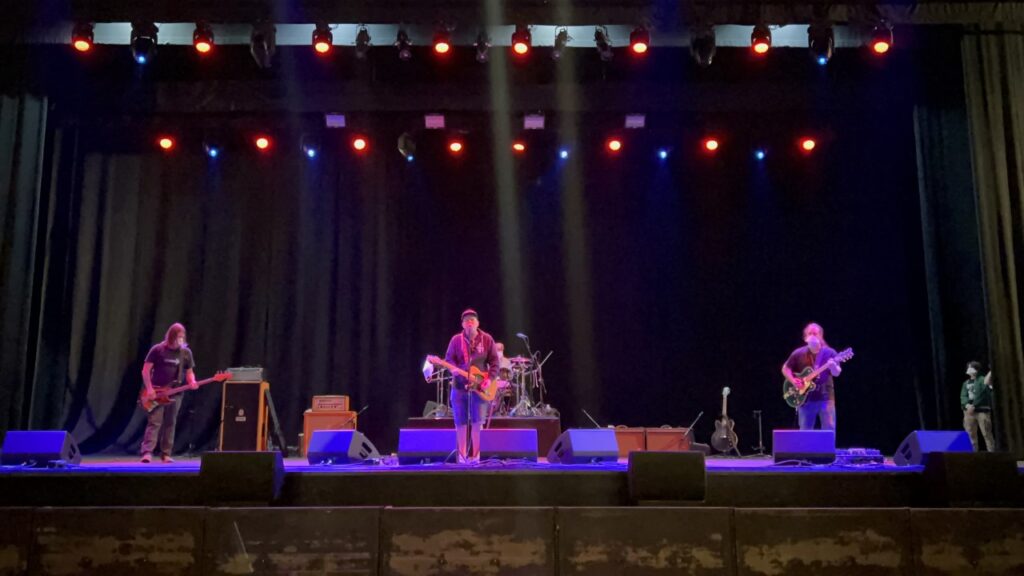
After watching The Ataris soundcheck, we poked around backstage looking for familiar landmarks. With the help of a gentleman named Mike, the theater’s bemused head of security, we hit the jackpot. Mike warned us that this area had been spruced up in recent years and it might not look exactly as it did onscreen. That was no deterrent, and it was a thrill to line up the shots.
GREAT NORTHERN BOILER ROOM IN TWIN PEAKS – PART 14
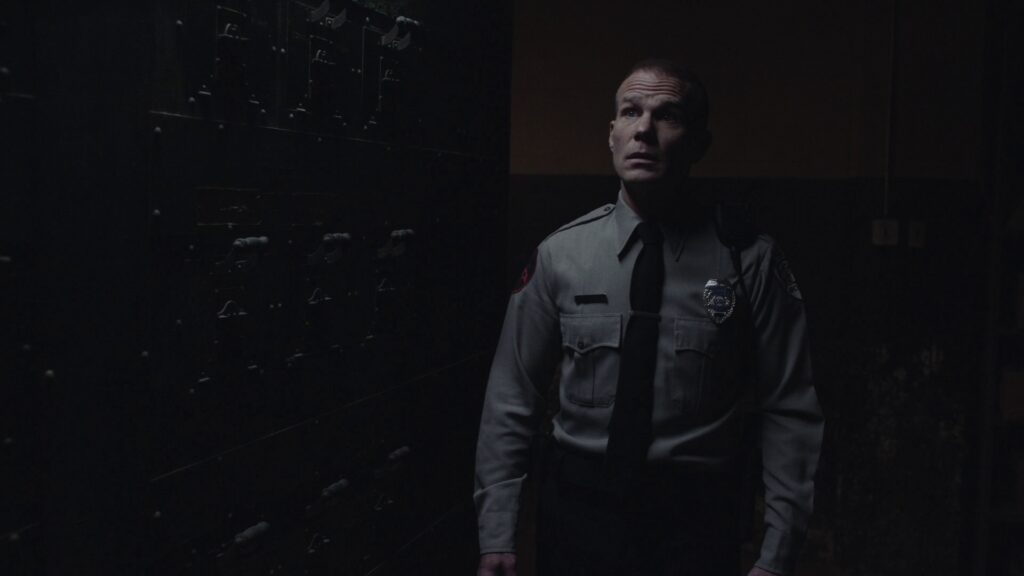
We first see this location in Part 14 of The Return as James Hurley walks past a panel of electrical controls while investigating a sound emanating from The Great Northern‘s boiler room.
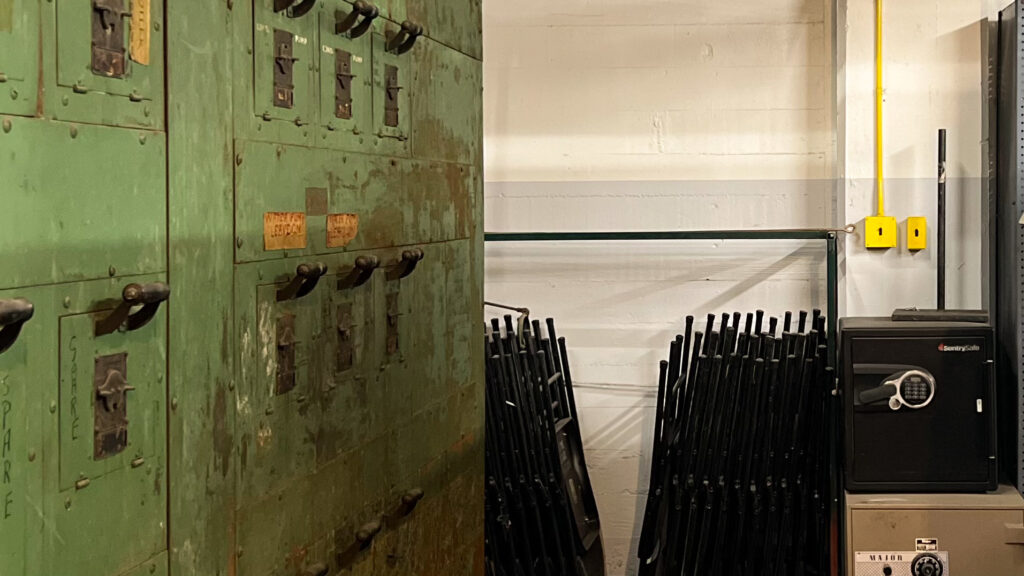
Mike told us that this panel is original from the 1930s. I have to think David Lynch was smitten with this weathered old equipment.
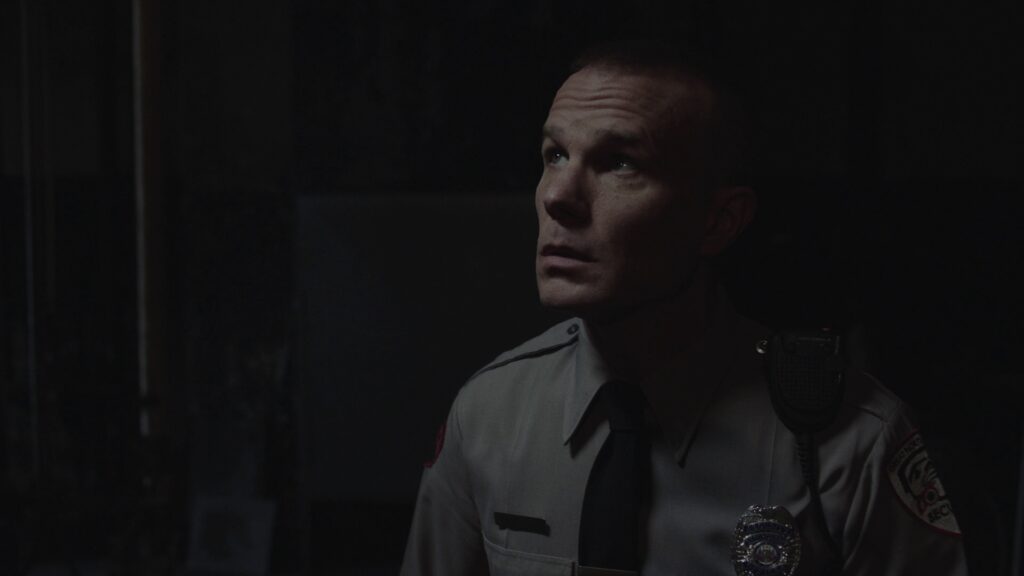
James passes by a number of vertical pipes and stops.
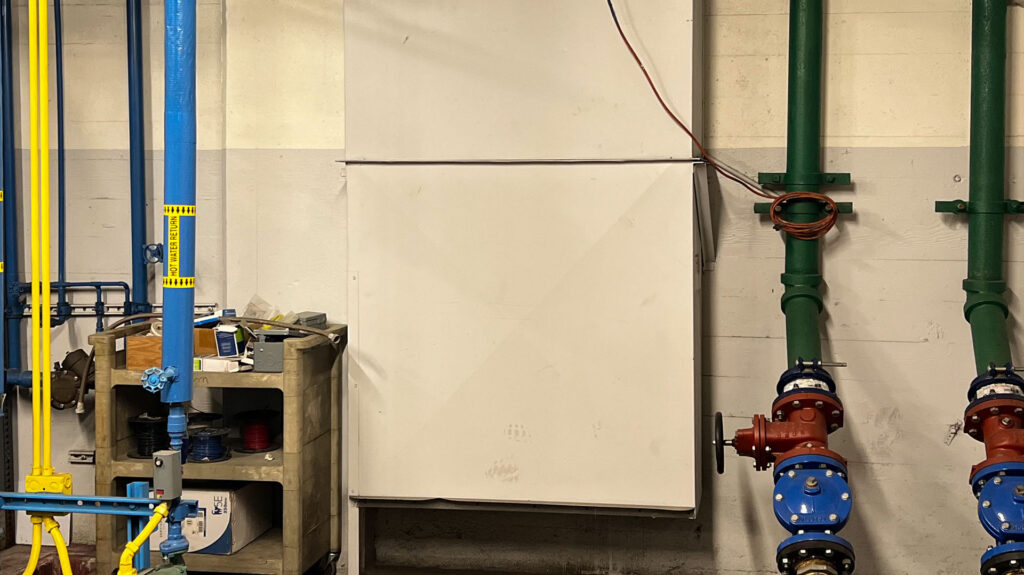
In reality, this walkway is parallel to James’ path past the breakers with the same wall in the background. The wall and pipes have since been painted but are still recognizable.
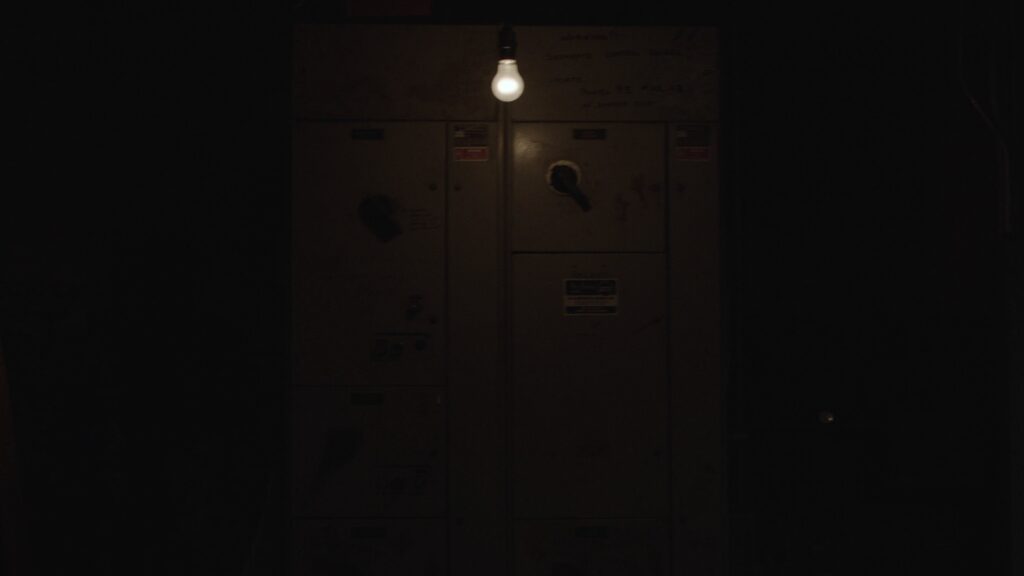
The camera pans across the room as James follows the sound. We get a brief look at a control box.
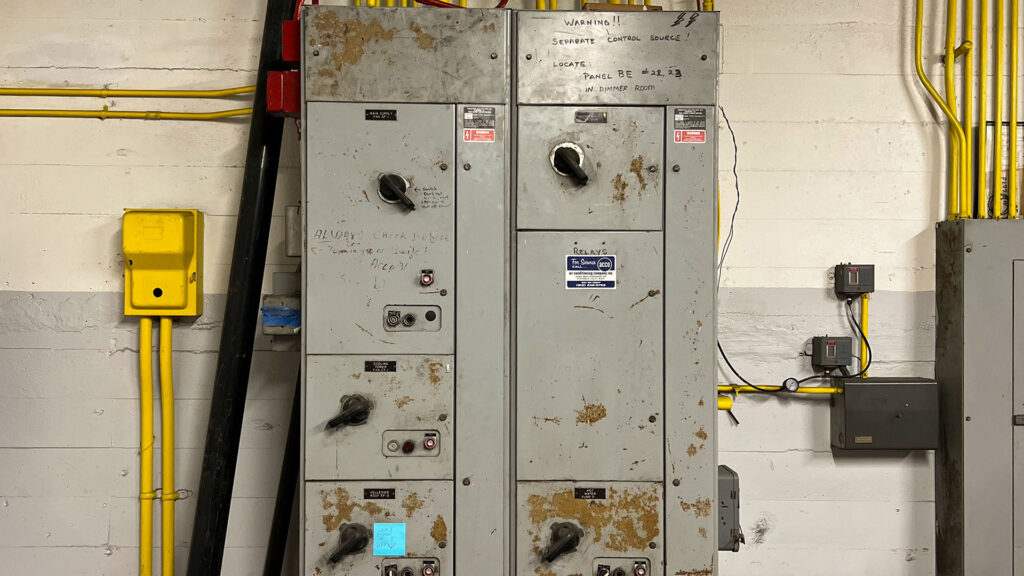
These are the controls to the theater’s air conditioning system. The handwritten notes we see onscreen are actual safety reminders for the Wiltern staff and were not added for filming. It’s tough to see onscreen, but the blue and white label on the right side has the service number for ACCO’s office in Glendale, CA. The only thing added seems to be the hanging lightbulb.
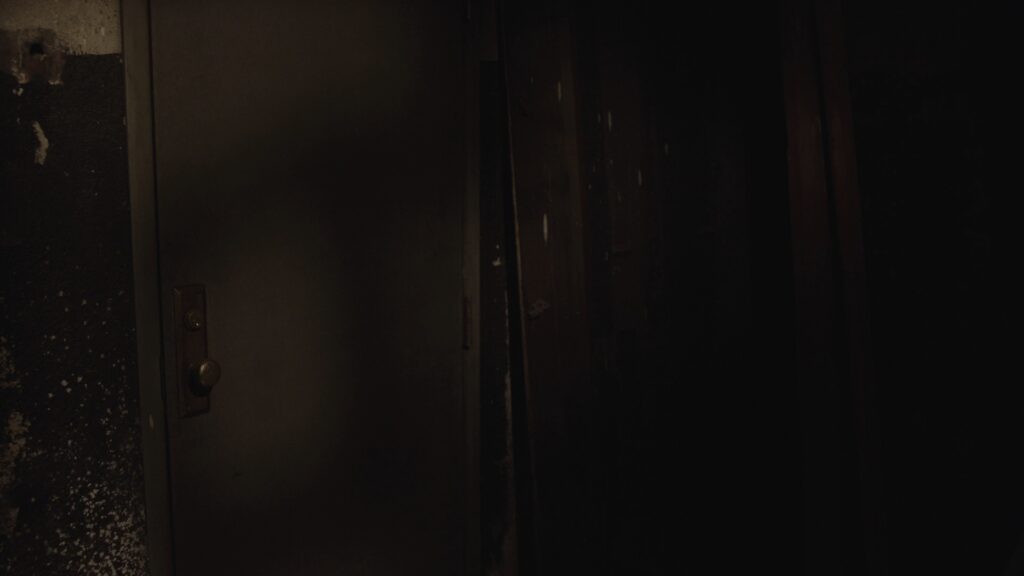
We land on a doorway which appears to be the source of the noise.
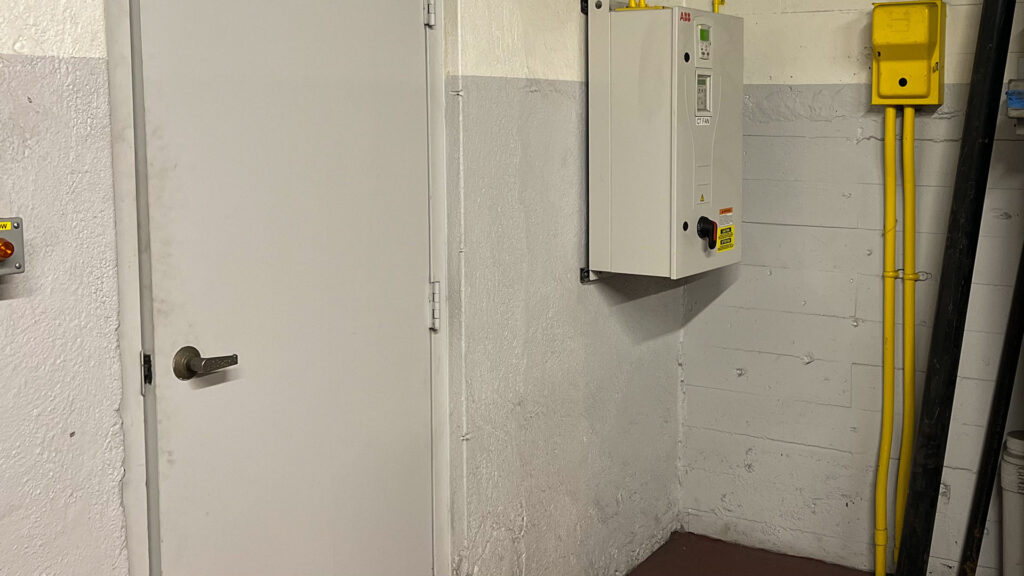
This corner looks considerably less spooky with a bright paint job and all of the lights on.
GREAT NORTHERN BOILER ROOM IN TWIN PEAKS – PART 17
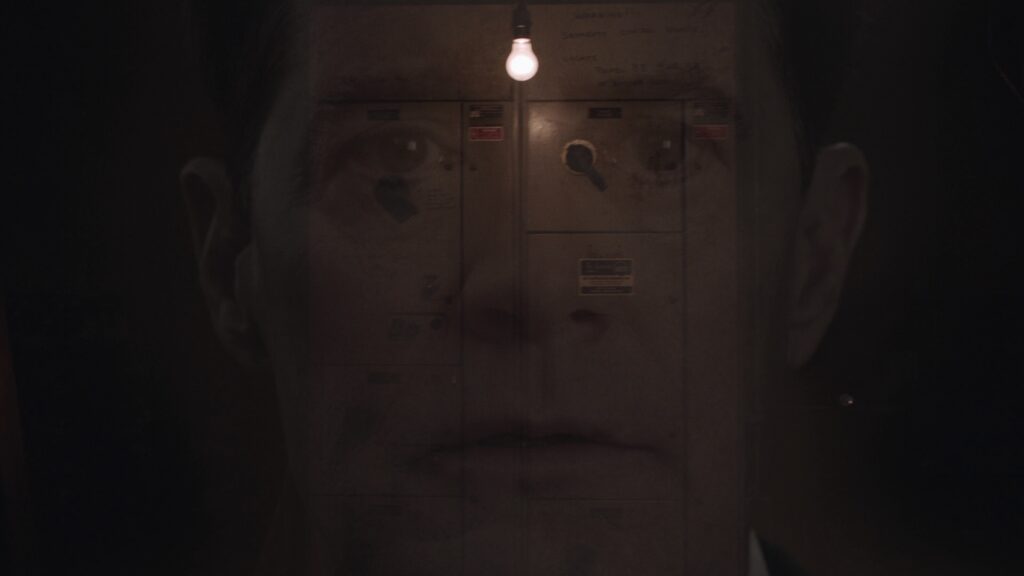
We next visit this location at a pivotal moment in Part 17. Agent Cooper’s face, superimposed over the stunned group assembled in Sheriff Truman’s office, says “we live inside a dream.” An ominous woosh transports Cooper, Diane Evans, and Gordon Cole to the boiler room. The sweeping shot from Part 14 is reused here, only now layered with Cooper’s face.
The trio follows the same path James took to the door. This time, a wider shot of the 1930s electrical panel shows additional equipment across from it.
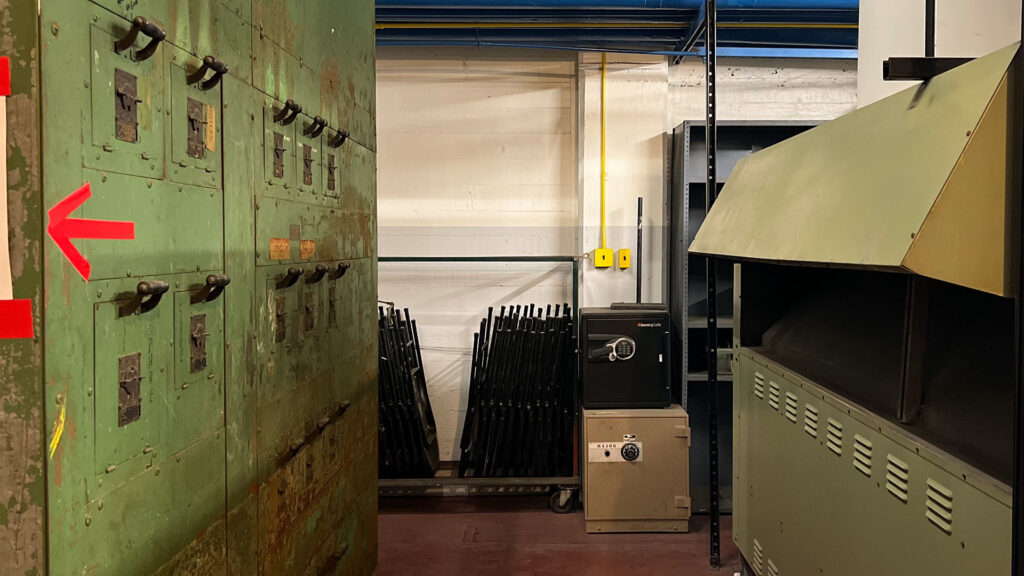
I am not sure what the hooded green item is, but it has not changed.
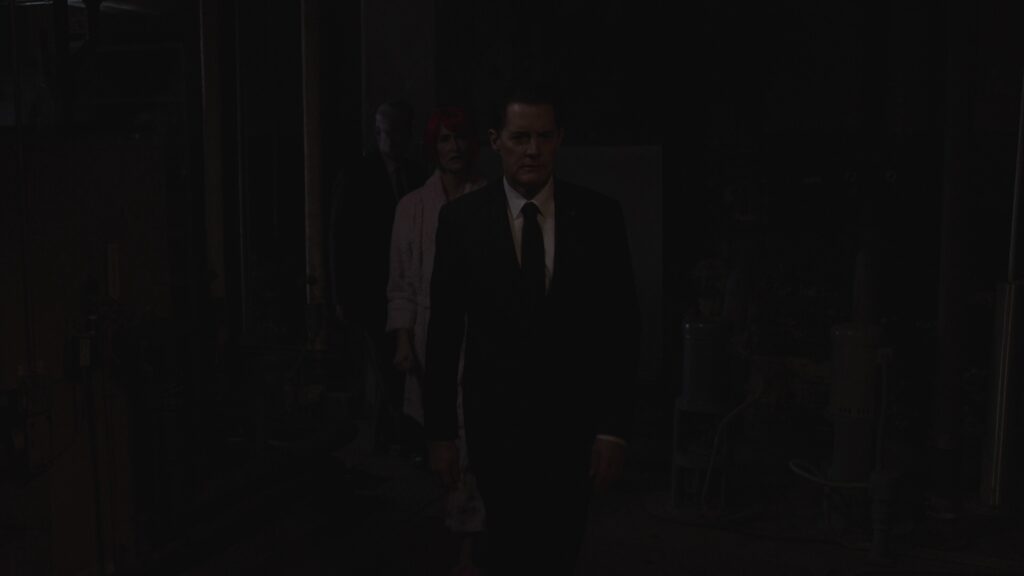
As Cooper leads the group to the door, more of the pipes are visible in the background.
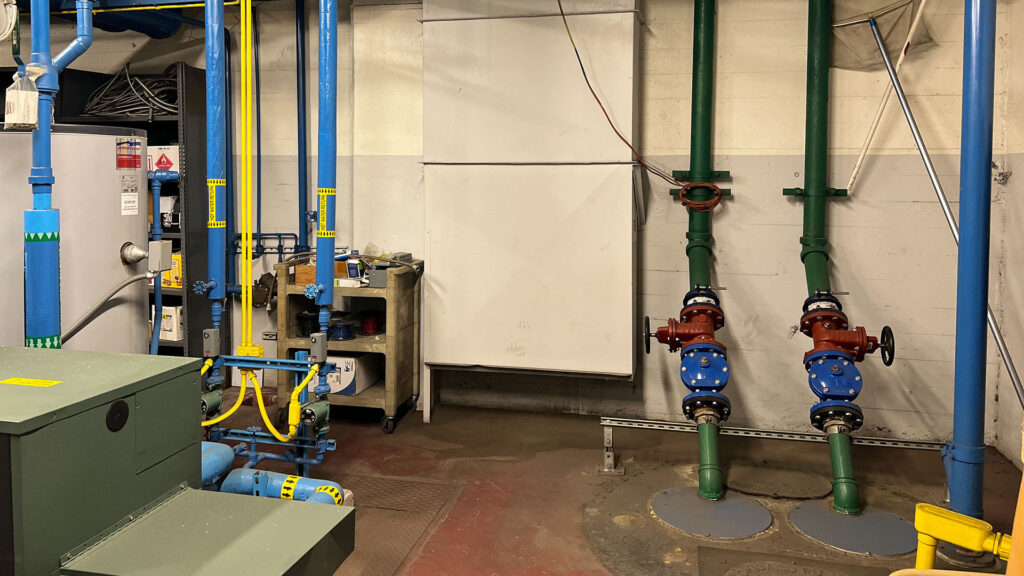
The parts on the right side have been replaced and modernized.
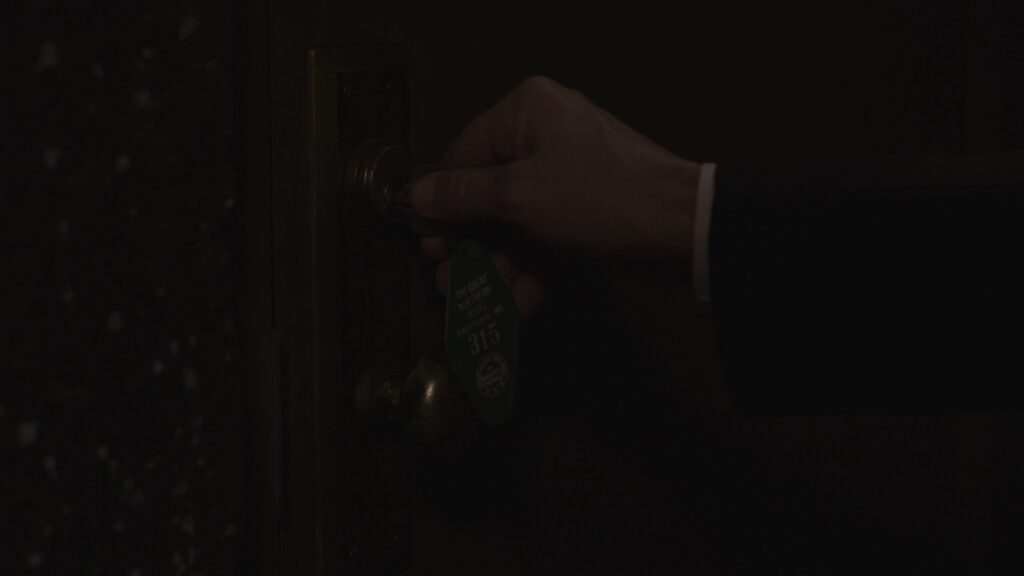
Cooper unlocks the door with his 25 year old room key.
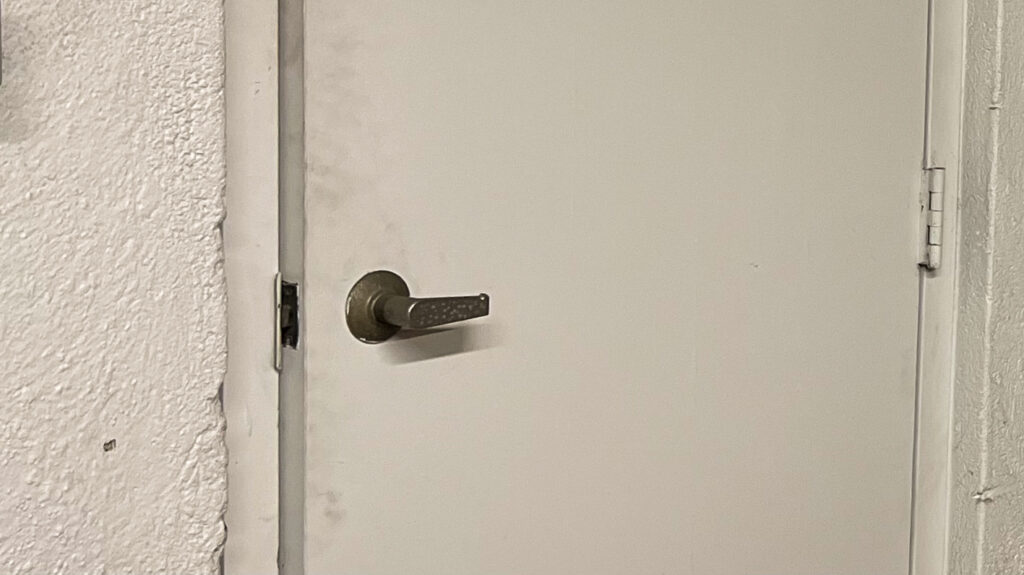
It’s funny to think that the Wiltern may not have met production needs today, as the knob has since been replaced with a handle.
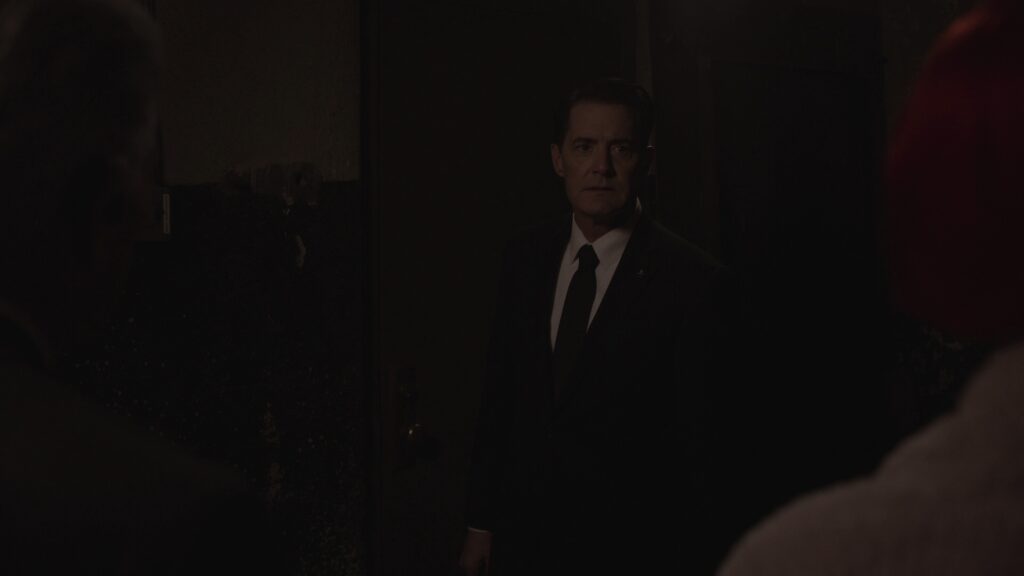
Finally, Cooper bids his friends farewell.
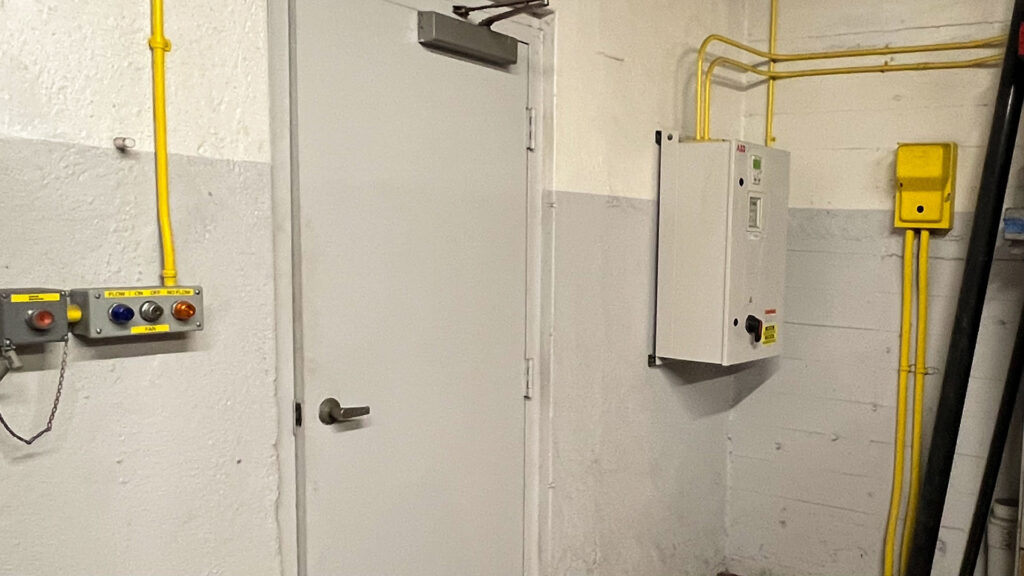
In this wider shot, we can see part of a switch by the door. It has been replaced with a more modern part.
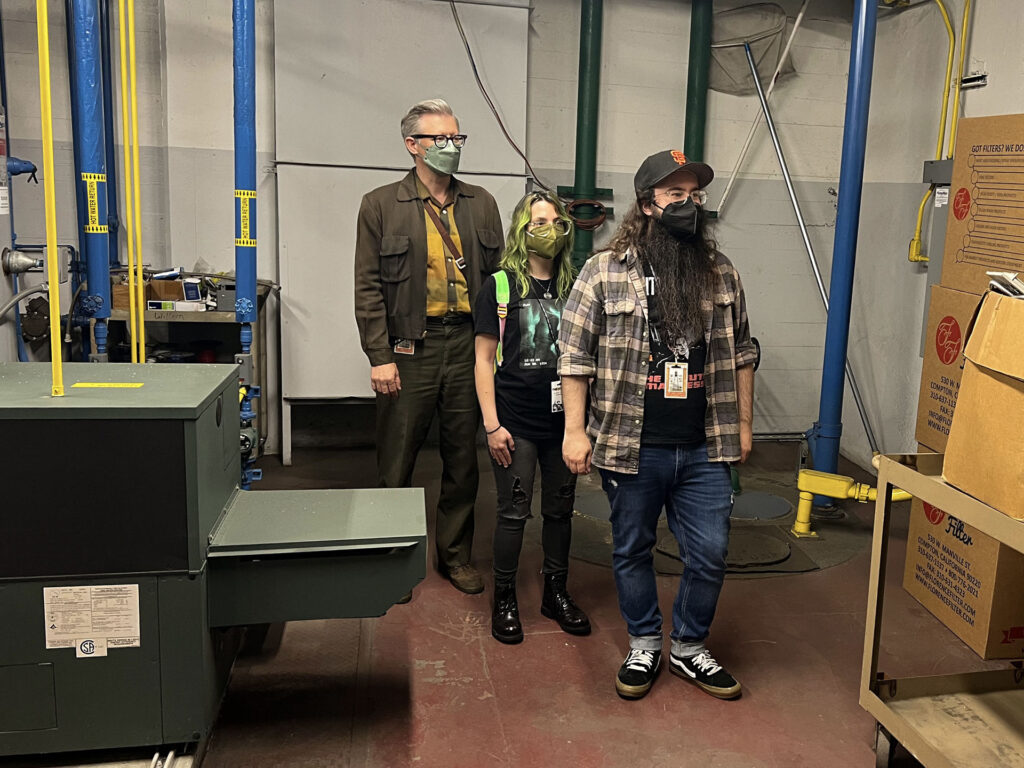
I can’t thank Bob enough for inviting me and Christin backstage so that we could all hunt down this filming location together. Huge thanks are also due to The Ataris for letting us hang around all weekend and to the Wiltern’s staff for humoring us. In all likelihood, this isn’t an opportunity we’ll ever have again.
Discover more from TWIN PEAKS BLOG
Subscribe to get the latest posts sent to your email.

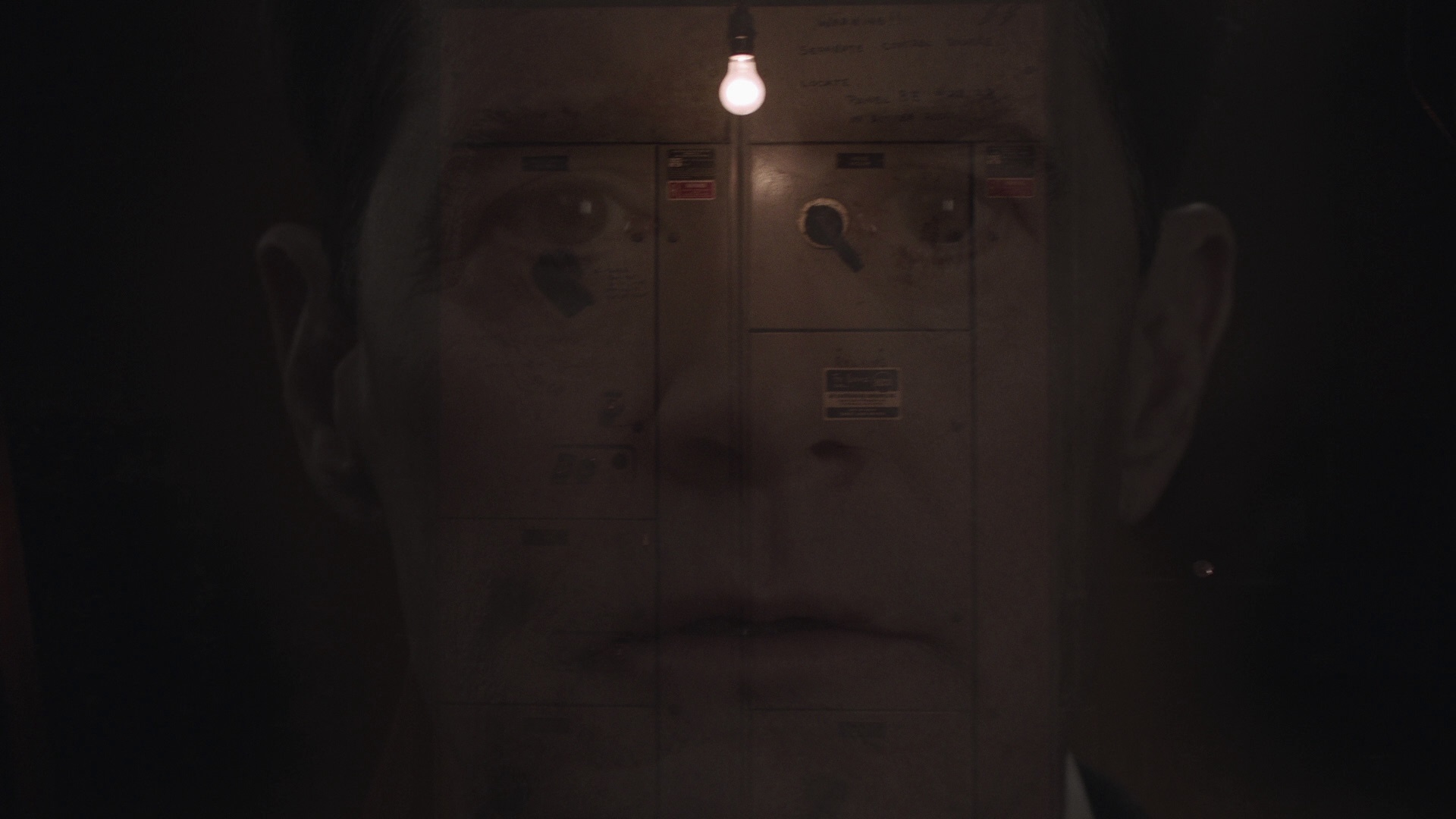
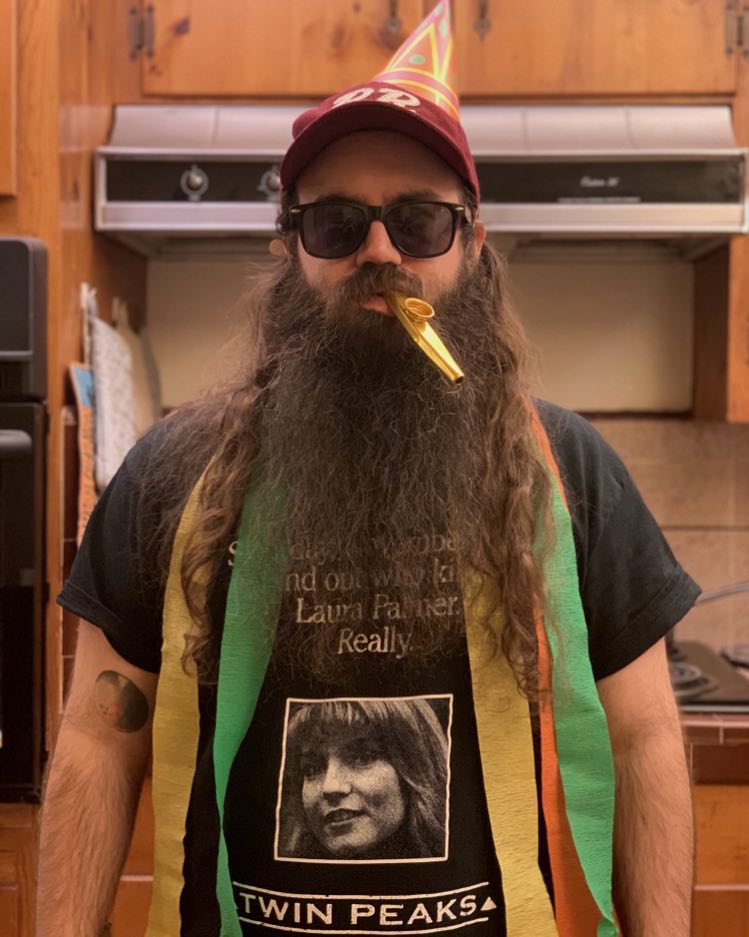

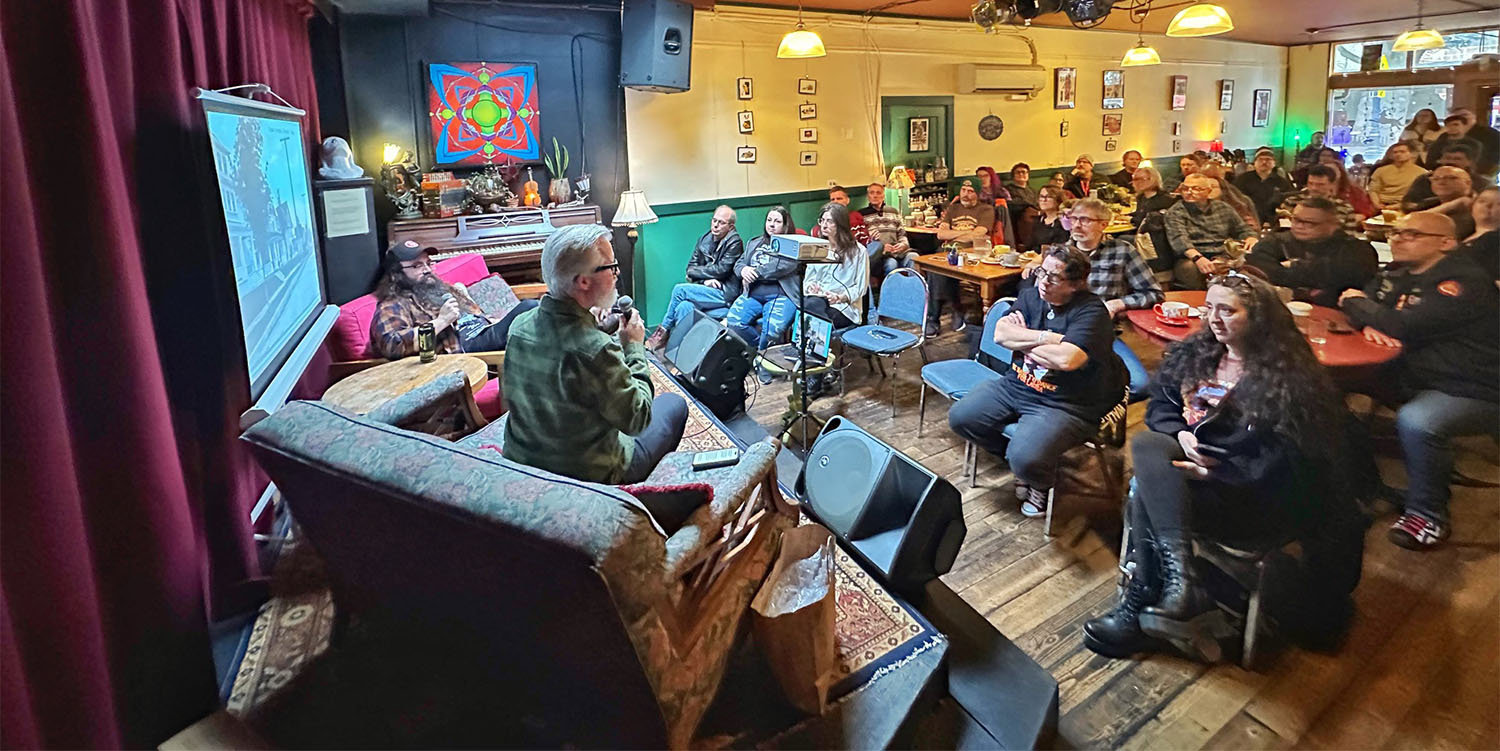
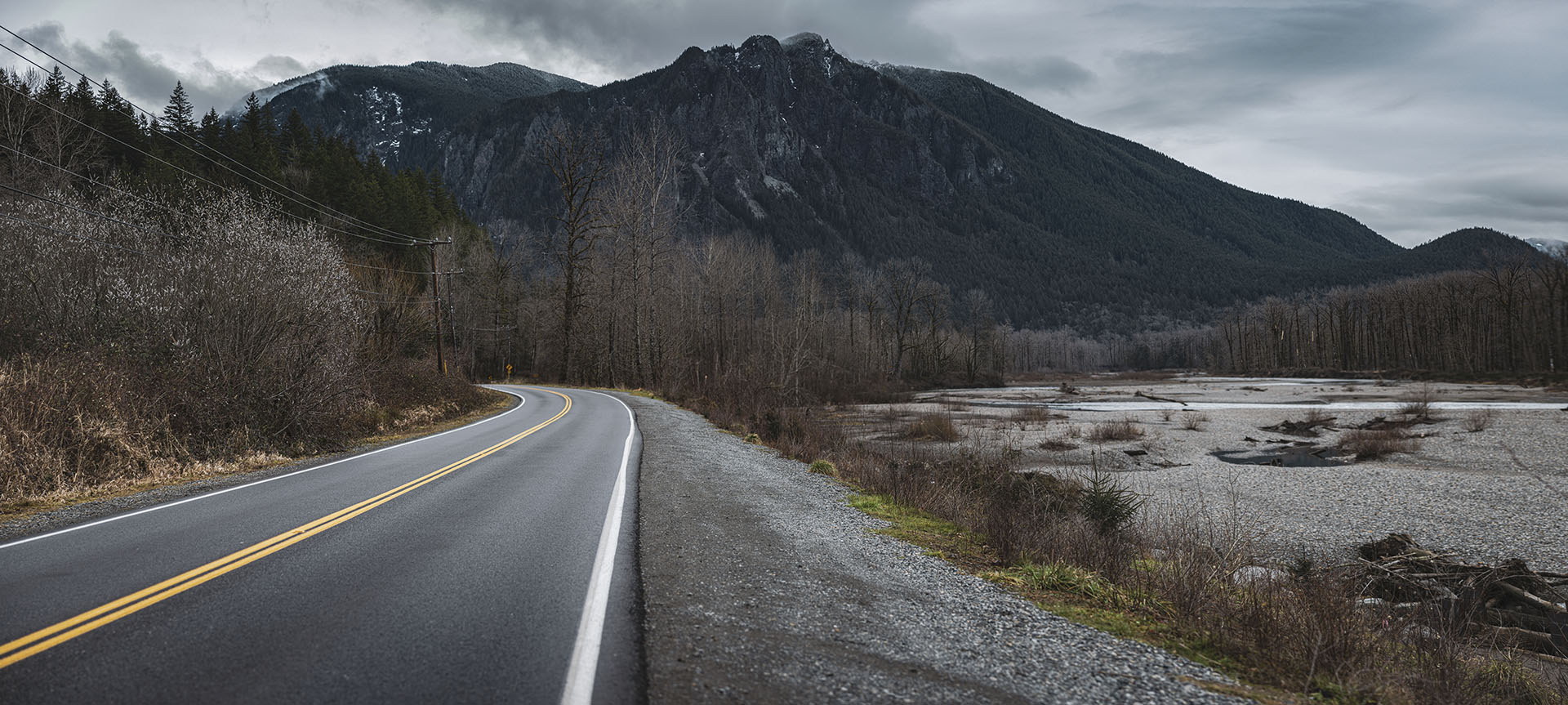
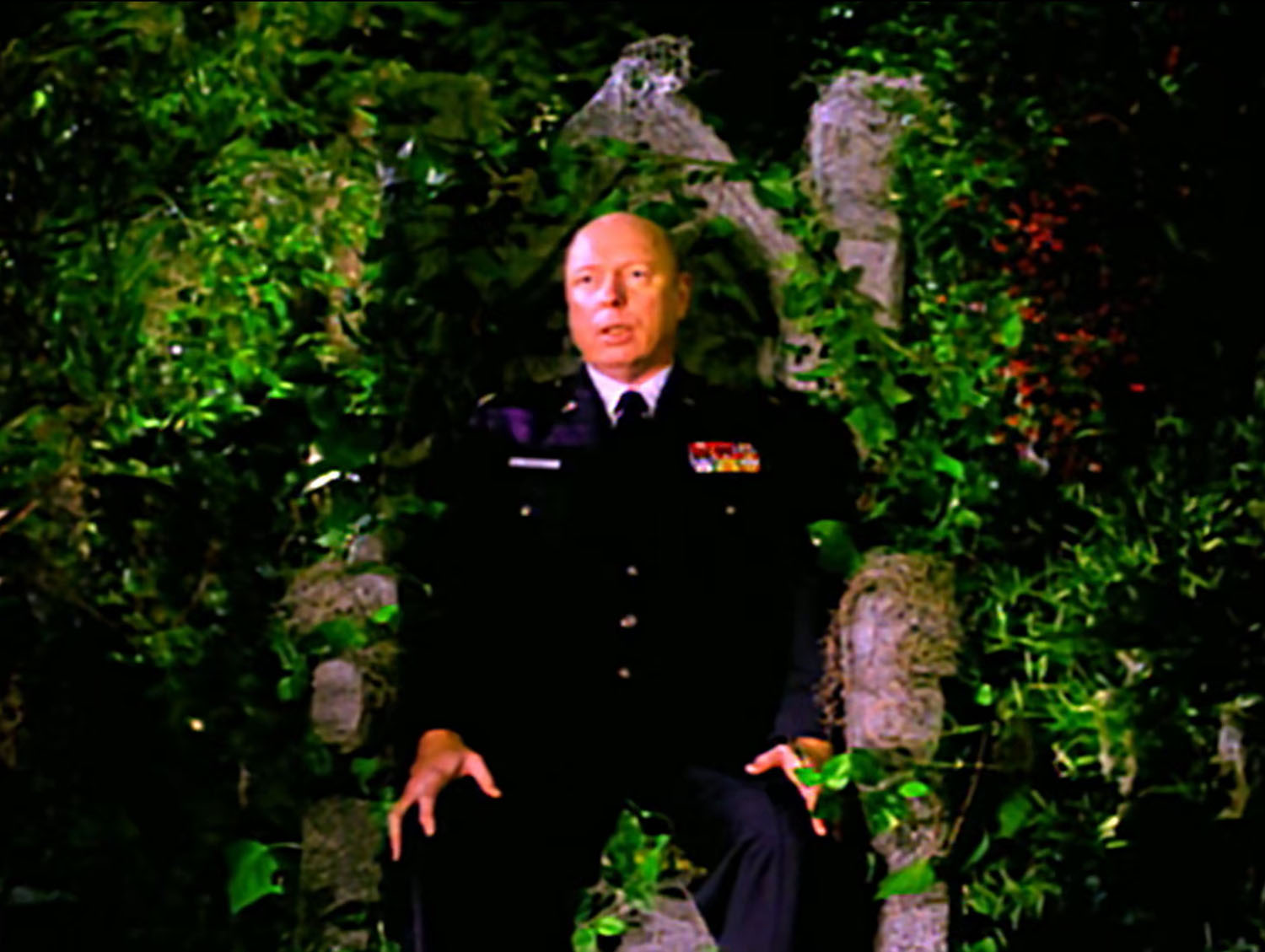
Great find, thanks for the write up!